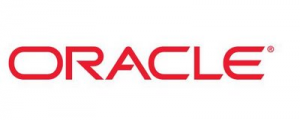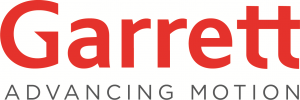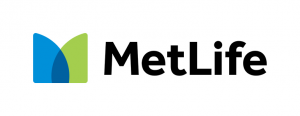New EY survey reveals crucial AI literacy training needs among Gen Z workforce
13.12.2024Company: EY
- By 2030, Gen Z will be a key driver of the AI future, comprising 30% of global workforce
- Most of Gen Z uses AI but scores low in critical evaluation and assessment of AI
- Social media dominates as primary Gen Z AI information source
Businesses and academia risk assuming that Gen Z students and employees are “AI natives” and must be mindful of Gen Z over-confidence in relation to artificial intelligence (AI) literacy. That is according to a new EY report developed with support from Microsoft and TeachAI, How can we upskill Gen Z as fast as we train AI?, which uses quiz-style questions to provide insight into the AI aptitude of more than 5,000 Gen Z respondents across 16 countries. The report also reveals that while Gen Z understands which products and tasks benefit from AI, their ability to critically assess the technology falls short.
In terms of AI adoption, the survey finds that the majority of Gen Z are using AI (61% are “varied” users, verses 15% “super” users and 24% “stragglers”1). When it comes to aptitude, Gen Z respondents score best on questions about understanding AI, such as selecting which tasks and products commonly use AI (69% out of 100). But they are less confident in relation to questions that cover how to write the best prompts for AI (56% out of 100), and they score most poorly on critically assessing and identifying shortfalls, such as whether AI systems can invent facts (44% out of 100).
More reassuringly, scores show that respondents recognize the importance of hard and soft skills required for AI, ranking creativity and curiosity as the most important skills needed to use AI well (52%), followed by critical thinking (47%) and then coding / computer programming (46%). This lays the foundation for Gen Z’s perception of AI’s benefits and risks. Respondents view the greatest benefits of AI to be time saving on repetitive tasks, analysing large amounts of data and reducing human error, and they view the greatest risks as increasing unemployment, reducing human learning and creativity, and generating false information.
While many Gen Z use AI as a tool to help them learn, there is a disconnect between how AI is perceived in workforce and education settings. Forty-two percent of respondents believe their educators would discourage AI use to complete certain tasks, with just 15% saying the same of their employer. This could be linked to how technology can sometimes be seen as enabling plagiarism in schools, leaving educators to balance the need to prepare students for the workforce with ensuring they’re not overly reliant on new technology.
The results indicate that educators and businesses are playing catch-up to the rapidly evolving technology of AI. But they also chart a path forward to identify ways for businesses to help close that literacy gap in AI education and engagement among a Gen Z group who lean toward an optimistic view of AI but may be over-confident in their ability to evaluate the technology for optimal use. Businesses have an opportunity to evaluate how their organizations are upskilling their own Gen Z workforce.
Dan Black, EY Global Talent Strategy Leader, says:
“Gen Z are the world leaders of tomorrow and some of today’s leading technology users. With more exposure to AI at the start of their career than any other generation in the workforce, they’re also the most exposed to the impacts of AI. Educators and employers must prioritize skilling this generation in AI literacy, not just around task-driven use but in relation to deeper evaluation and critical thinking for much broader and loftier use.”
Naria Santa Lucia, Skills for Social Impact Leader at Microsoft Philanthropies, says:
“At Microsoft, we are working globally to deliver AI skills and literacy needed to succeed in a rapidly changing economy. This report highlights the critical need for comprehensive AI skilling efforts to ensure all people, including Gen Z, can use AI responsibly and effectively. We believe that through collaboration with educators, businesses, organizations like EY, and initiatives like TeachAI, we can prepare individuals and organizations to harness the full potential of AI for the benefit of society.”
Reflecting the wider scale of transformation that business and society face in not only harnessing the power of AI but also addressing its implications for people and the planet, the report shows that organizations need to prepare Gen Z with the right skills to understand, use and evaluate AI to innovate and evolve responsibly. The report shares key recommendation for employers and educators to achieve this, including:
- Strengthening AI education to build better literacy through public and private collaboration: The report finds that Gen Z is somewhat satisfied with the guidance and preparation for AI from their employer or educational institution, with the first choice for desired types of support being courses or training from AI providers (37%) and resources that support self-guided learning about what AI is and how it works (35%) and how to use it (34%). The report highlights that this presents an opportunity for public and private organizations to engage the workforce of tomorrow. More comprehensive AI education programs that introduce and foster use skills and evaluation competencies can be better achieved by organizations teaming with schools to build and provide work-readiness AI content and opportunities around AI-augmented jobs of the future. Businesses, non-government organizations (NGOs) and government agencies can pool individual expertise and resources to provide better curriculum and policies.
- Mobilizing trustworthy information about AI on social media: The report found that 55% of Gen Z respondents ranked social media as their most prevalent source for AI information. Organizations and educators can leverage Gen Z’s attention to social media for good, by creating and amplifying trusted, vetted content about AI, on the platforms this generation is already invested in and spending their time on.
Pat Yongpradit, Chief Academic Officer of Code.org and Lead of TeachAI, says:
"It is refreshing to see the conversation about AI in education move beyond how people feel about AI to what they actually know about AI. Code.org and the TeachAI community are committed to a future in which every student and educator is AI literate and can use AI ethically, effectively, and responsibly."
For more information, please visit ey.com.
Tags: IT |







